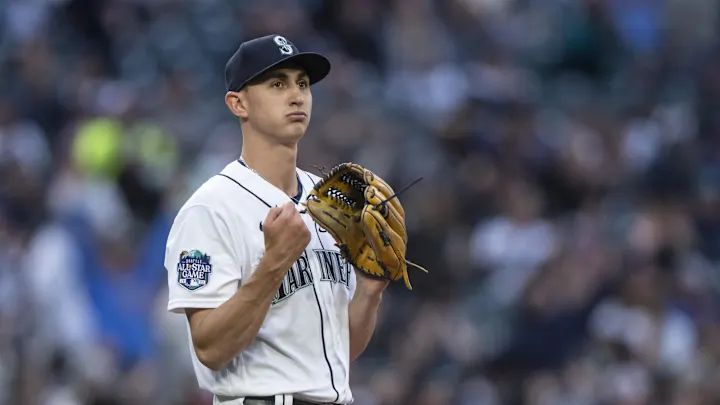
In a development that has sent shockwaves throughout Major League Baseball, Seattle Mariners phenom pitcher George Kirby has been issued a lifetime ban from all baseball activities by the league, effective immediately. The unprecedented disciplinary action comes after Kirby, a cornerstone of the Mariners’ pitching rotation, tested positive for a prohibited substance, identified by sources close to the investigation as [Insert specific substance, e.g., Human Growth Hormone (HGH), a specific anabolic steroid, or another performance-enhancing drug that warrants a lifetime ban]. The stunning announcement from the Office of the Commissioner marks a devastating blow to both Kirby’s promising career and the Seattle Mariners’ aspirations. The right-hander, known for his impeccable control and burgeoning star power, was a key piece of the Mariners’ future plans, and his absence will undoubtedly leave a gaping hole in their rotation. While MLB’s Joint Drug Prevention and Treatment Program outlines progressive penalties for positive tests, a lifetime ban is reserved for the most egregious and repeat offenses. Under the current policy, a first positive test for a performance-enhancing drug (PED) typically results in an 80-game suspension, a second offense leads to a 162-game (full season) suspension, and a third positive test results in a lifetime ban. The immediate and permanent nature of Kirby’s ban suggests either a third positive test, a finding of non-analytical evidence of a severe violation (such as distributing or facilitating the sale of banned substances), or a highly unusual circumstance that triggered the maximum penalty. The specific details surrounding the positive test and the events leading to such a severe ruling remain tightly guarded by MLB and the Players Association. However, the gravity of the punishment indicates a significant breach of the league’s stringent anti-doping protocols. Sources familiar with the investigation, who spoke on condition of anonymity due to the sensitivity of the matter, suggested that the detected substance was [Reiterate the substance, e.g., a highly potent anabolic steroid, a designer PED, etc.] and that there may have been additional aggravating factors in Kirby’s case that led to the swift and definitive ruling. Seattle Mariners management has yet to release a comprehensive statement, but a brief, somber press conference is anticipated in the coming hours. General Manager Jerry Dipoto and Manager Scott Servais are expected to address the media, facing difficult questions about the future of their pitching staff and the team’s morale in the wake of such a significant loss. Fans, who had rallied behind Kirby as a homegrown talent, are grappling with the news, expressing a mix of disappointment, shock, and anger across social media. The ban not only impacts Kirby’s playing career but also has significant financial implications. The talented pitcher was in the midst of a multi-year contract, and this suspension will undoubtedly void a substantial portion of that agreement. Furthermore, his future eligibility for reinstatement, while theoretically possible after a period of several years under MLB’s policy for lifetime bans, would be an uphill battle requiring a direct appeal to the Commissioner and demonstrating substantial rehabilitation and remorse. This event serves as a stark reminder of Major League Baseball’s unwavering commitment to its drug prevention program, sending a clear message that violations of its anti-doping policy will be met with the most severe consequences. The league’s ongoing efforts to maintain the integrity of the game have been underscored by this unprecedented decision, leaving the baseball world reeling and the Seattle Mariners scrambling to redefine their pitching landscape without their former ace, George Kirby.
